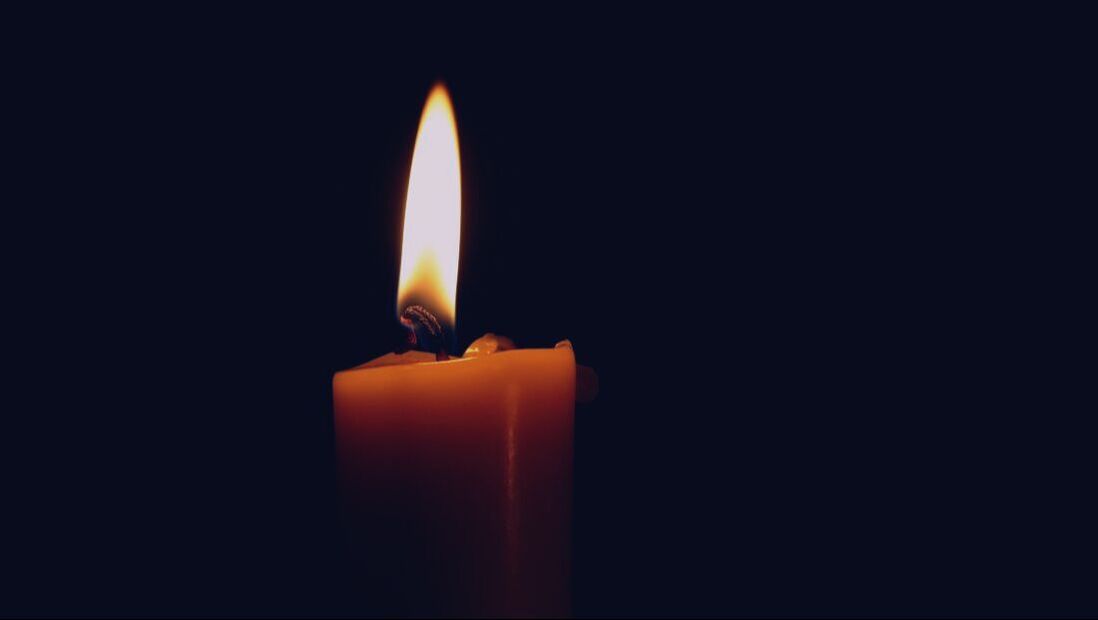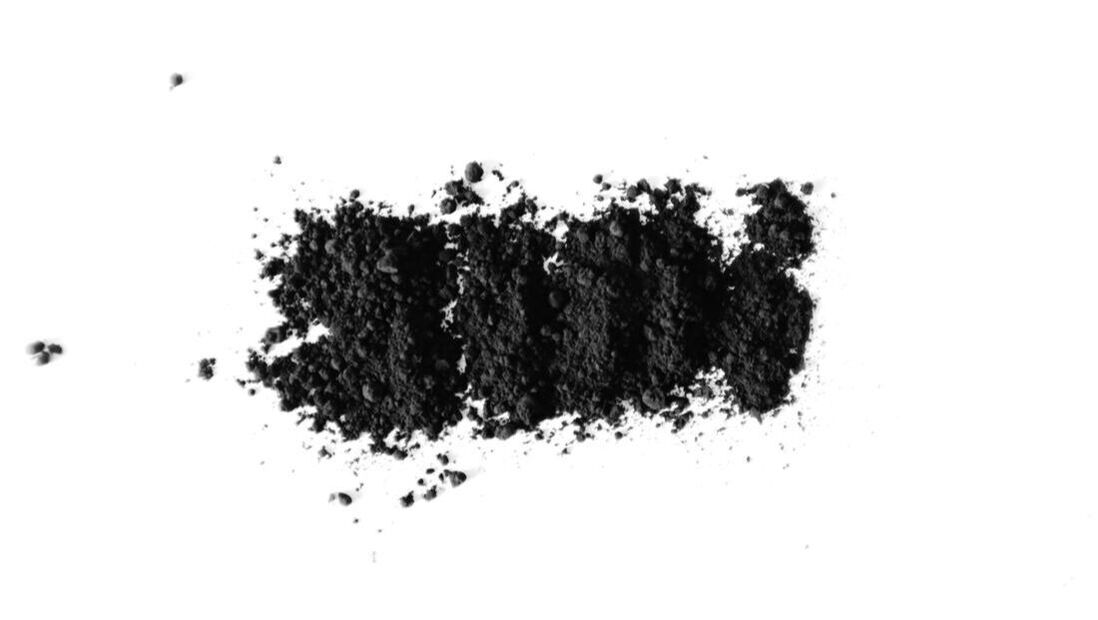|
They said I should have loved a crane wife, her bleeding out in snow, onto ivory ice, I would give her my cloak and she would be the female Christ, her blood stain my kimono, and as I carried her home to rice paper walls, on bent back, she would sing the sister stars down, and those souls departed would flock around me, and I would know something of the afterlife, offering up my pain and beauty to death, and as her wings married my mind and marred my pain stains into something quixotic, I would quicken, and Hell would have no place in my palace, and I would make a thousand like her, all for one wish of peace, after Hiroshima bombed me quite starstruck and desolate, and the grave of the fireflies wept. They say I should have loved a crane wife instead. But I became the bank of winter she drowned in, you see. And I would never steal feathers or clip the wings off a bird. We let our greatest potential go, and in that, grow. Love is not the answer. The answer is a frozen rose. Hope is not my delight. No, it is sacrifice. And as the crane flies free, I am left flying kites, looking up at the clouds, and dreaming of redemption found at bitter beak and angel lips, and a thousand other impossible things. Allister Nelson is a poet and author whose work has appeared in Apex Magazine, The Showbear Family Circus, Eternal Haunted Summer, SENTIDOS: Revistas Amazonicas, Black Sheep: Unique Tales of Terror and Wonder, FunDead Publications Gothic Anthology, and many other venues. Her most recent publication, "The Tobias Problem," was just nominated for a Pushcart Prize at Freedom Fiction. Three weeks ago, August 25th, just before the Labor Day holiday, my computer buzzed loud enough to awaken the household—Mr. Jimmy Smith, DOB—, SS#--, your EOL score has reached one hundred! Please read below and follow the instructions…. The news is blunt and painful, painful like a Band-Aid I should have removed in the shower but forgot. I feel well despite my slowly progressive neurologic illness, but the concept of “feeling well,” is not integrated into the Formula. The EOL (End of Life) Formula (this is an example): three points for pancreatic cancer multiplied by your age over one hundred, minus factors such as your BMI (body mass index), treatment possibilities, family history, and other variables depending on the minutiae provided in the Formula. Don’t worry about calculating your score, the Formula does it for you. On your 21st birthday you are “chipped” or “E-LODED,” as it is called. There are no exceptions, the scar on your upper right thigh is universal. Your score arrives on your computer the first Tuesday of every month ad infinitum until you reach the magic or tragic number of one hundred, when you are graciously asked to end your life for the good of humanity. Too many cars, too many people, too few hospital beds, too little food, too little potable water—a third of Medicare money, billions of dollars, is spent on our final six months of life—our way of life is unsustainable. The sticking point is numbers. Zero population growth is a laudatory but difficult goal. Begetting is inherent in our biological heritage, just like walking or talking. There is no need for instruction. Deciphering the tangled novels of William Faulkner or the plays of Tennessee Williams, contraception, religious exception to abortion, abstinence, anti-government beliefs, those need to be taught. The Formula plots the intersection between productivity and obsolescence. When the input (birthrate) is too high, the output requires adjusting. At a score of one hundred, societal support stops. There are no further medications or hospital care. Simple is the order of the day: a pinewood coffin, no formaldehyde, and a quiet farewell. There are small groups of deniers who hoard their medications and live off the land, but they are misfits and outcasts. They are not my kind of people. As youngsters, we had gathered in August after summer camps and summer jobs ended and lazed at beaches and in each other’s homes, boys slicking their hair, flexing their muscles, and eyeing the girls with their new bumps and curves. Now I sit on the deck soaking up the late summer sun as if it has a short half-life and reminisce about my past as the days bleed into the night. The sun and warmth hold while I fathom the reality of my coming death. Obituaries attest to dying peacefully in one’s sleep—I will soon discover the truth. I am chilled with the memory of my wife and our lost love and the need to finish our conversations that I trust will occur in the hereafter. It was my second year of teaching, school started in ten days, and my lesson plans were complete. Sandra, our new science teacher, who held up well to the scrutiny at teacher orientation day, attracted me with her confident smile. After we had made our introduction and the dissection of the weather and baseball, I asked her to join me for dinner. I’m the math teacher, I boasted, my room is across from yours and I’ll be there when you need common sense advice or for that matter advice about anything and being a math wizard, I can figure out the gratuity and the accuracy of a dinner bill without even needing a calculator. She gave me a nod and a half smile like someone recognizing the words of a favorite song—and it had been a long day and I appeared safe. We walked outside without urgency, the grounds were green and lush, the air fresh from a late August rain, and the late afternoon shadows making us a couple. I know a good Italian restaurant, Sandra said, and you won’t have to struggle with the math, they automatically add 18% to the dinner check. Months later, after dinners and picnics, and laughs, joyous laughs, I awakened one morning realizing that I didn’t wish to live without her sweetness and intelligence, but it was Sandra who whispered I love you so quietly it was as if she was telling me the time of the day. Sandra collapsed after the rupture of a brain aneurysm that had dwelled silently during our years of serenity. Her final Score made public—thirty becoming one hundred. The holdouts accused me of homicide as I arranged final plans. The groundbreaking, intrusive and irreversible legislation behind the Formula ignored the grief when arranging the death of your loved one. My computer overlooks the garden with the show-off rose bushes and the bird feeder that is inherently incapable of keeping the squirrels away but spreads enough seeds to attract the birds. I reflect on my past and assess the future, the latter sliding backward and morphing into the present. Blue jays, cardinals, robins, house sparrows, my garden is laced with the choir of late summer songs. The pre-Formula times offered hope with surgery and newer medicines for Sandra and physical therapy for me. But my enthusiasm for life has weakened. I only have enough strength to oversee the planning and benediction of my funeral. Old age mellows expectations and questions my dreams about the afterlife; although perhaps there is a teacher’s section up there or maybe I’ll find that love triumphs like in Brigadoon. I carry at least one disappointment in my old age: My piano skills are amateurish. I will admonish my parents—they should have made me practice more, but in my dreams, I play like Dave Brubeck. I don’t know why I only play the Beatle song “Hey Jude,” but maybe because it was easy and slow, and don’t be bad, don’t be afraid, and don’t let me down resonated with my life. Hanging on the wall to the left of my computer, but always in my sight, is Berenice Abbott’s black and white photograph of Edna St. Vincent Millay wearing a jacket and tie. Vincent, as she was called, and I burned the candle at both ends in our youth. The first woman awardee of the Pulitzer Prize in poetry in 1923, she was widely popular, reading her poems in front of packed audiences often picturing death as “the shutting away of the living hearts in the hard ground.” For rain, it hath a friendly sound To one who’s six feet underground: And scarce the friendly voice or face, A grave is such a quiet place. There is no further need to purchase lifetime warranties or hire a personal life coach when death will be several dry martinis away—and I understand now and with great certainty that it is best to leave before the candle becomes completely dark. Michael Ellman is a retired physician from The University of Chicago and a writer. His collection of published short stories, Let Me Tell You About Angela, is an Eric Hoffer Award Finalist. His novel, Code-One Dancing, is an Indie Award winner and describes the intersection between a resident physician and the Chicago mob. Sunlit ocean waves break on seaweed covered granite. Sea birds dive in surf foam for a meal. Cars bring weekenders. Good companions bring joy They trudge unimpaired strolling alongside shore. I can no longer walk far (the price of inactivity and years). Still, I am older than my father ever got to be. What day is like this in all of history?! The sun’s yellow ball burns in the blue sky. I cannot think of the words. Instead I make notes hoping to remember later how to convey my elation. I have lived through psychosis and thoughts of suicide, lived to see a day like this. I want to remember the smell of its sunshine as I pass through bleak days ahead. I want to show you its fervid energy with words, but my hand lies limp as I sit at a bar and drink my Virgin Mary. Ed Krizek holds a BA and MS from University of Pennsylvania, and an MBA and MPH from Columbia University. For over thirty years Ed has been studying and writing poetry. He is the author of six books of poetry: Threshold, Longwood Poems, What Lies Ahead, Swimming With Words, The Pure Land, and This Will Pass All are available on Amazon.com. Ed writes for the reader who is not necessarily an initiate into the poetry community. He likes to connect with his readers on a personal level. A moment in time and a brief memory, whispered words softly spoken in a darkened room. The dust rising in a cloud in some distant desert, sunlight shining through the ashes of all our yesterdays. We live many lives wearing many masks, we love too much and too often or not enough or not at all. We spend our lives fearing death, while we let love die before our eyes. Our bones will one day be but dust as we find our last resting place; or our bodies will become mere ashes in the final fire of our lives. Death is not always at the end and it is not always an ending: through love we sometimes die a deeper death than that which eternal sleep can bring. I have walked in the dust of yesterday and left footprints the wind won’t touch; I have risen from the ashes of love gone bad and found peace flying above and beyond. I have seen the Phoenix and will follow its flight: rising out of the ashes, flying through the dust. John RC Potter is an international educator (currently university counsellor, previously principal & teacher) and gay man from Canada, living in Istanbul. He has experienced a revolution (Indonesia), air strikes (Israel), earthquakes (Turkey), boredom (UAE), and blinding snow blizzards (Canada), the last being the subject of his story, “Snowbound in the House of God” (Memoirist, May 2023). His poems and stories have been published in a range of magazines and journals, most recently in Blank Spaces, (“In Search of Alice Munro”, June 2023), Literary Yard (“She Got What She Deserved”, June 2023) & Freedom Fiction (“The Mystery of the Dead-as-a-Doornail Author”, July 2023). It was recently announced that "She Got What She Deserved" has been named as one of the Top 100 Projects in the 7th Annual Launch Pad Prose Competition. Learn more at author-blog.org and https://twitter.com/JohnRCPotter. we went fishing that one time Dad and I used these little strips of lead you could twist them into all kinds of shapes weigh down the line so it didn’t float on the surface in the sun innocuous, commonplace toxicity dismissed out of hand Patricia Wentzel lives at the confluence of two rivers which may explain why she sometimes writes work that stirs the silt of social conventions especially around mental health. She has been previously published in the Journal of the American Medical Association (JAMA), the Light Ekphrastic, Right Hand Pointing, and has work forthcoming in the Cutbow Quarterly, the Tule Review and the Monterey Poetry Journal. Lil’s like a daughter to me. Hate to see her grieving Cam’s passing so hard. All of us are grieving Cam. He was good man. When he decided to settle in Harlan and hang his shingle after law school, he could have had any girl in this town – every single girl at Powers and Hortons, for one. He’d come in whistling, say howdy to Polly at the register and she’d blush blood like a redhead will, and then all us salesladies would hush to hear his conversation over in the men’s section. We loved him in a Schlesinger’s worsted wool, that one with the blue pin stripe comes to mind. My heart breaks for Lil, all alone. In Bible study we kept her and Cam on the prayer chain for a child, but God must have other plans. Well, she’s not exactly alone, as we all saw at the viewing tonight. Those Eastmans are a sight! Lil’s oldest sister was standing in front of Delong’s Funeral Home smoking, wearing a cheap skirt five inches above her knees. Her runny nosed brood leaning on the back of that rusted truck, parked on the sidewalk by the way, making all of us tramp through the Cotton’s front yard to get into the parlor to pay our respects. What’s bred in the bone at Harlan Gas. Cam plucked Lil up out of there, gave her a better life. Must’ve been 18 years ago Cam posted the bans at church about his intent to marry Lil Eastman. First off, it was shocking he’d finally chosen someone, since he was already in his thirties. And then an Eastman girl! Barely twenty, working at the drugstore counter. (At least Lil’s daddy was the only one in Big Jim’s brood who didn’t spend time in the courthouse basement.) When Lil walked down the church aisle on her wedding day (her daddy wheezing because of the Black Lung) I pitied her. She’d worn her mother’s dress, long sleeved, and it was June, so the flush she had on her cheeks made us all hot. We grabbed for those pew fans and beat them something furious at the sight. I thought I saw a big yellow stain on her hem, but it could have been a reflection of the gold velvet pew cushions behind her. (Thinking back on it, she should have worn a slip underneath. White satin is a tricky material.) Lil picked cornflowers from her Daddy’s house as a bouquet, and they looked as sad as they do along the side of the road. Not a lick of makeup, her long auburn hair in a thick braid down her back. She wore black patent leather shoes. With a wedding dress! The rest of her clan looked like a pile of dirty laundry in the front pew. The young’uns were wailing. When Dr. McDowell started a prayer, all of them would raise their hands, saying amen out loud. (It’s just not the way of us Presbyterians. There’s no dunking, no hollering in our church.) At the end of the ceremony, Cam said, “I’m not leaving here without kissing my bride, Pastor,” even though that certainly isn’t something we do in the sanctuary, no sir. And then he placed both of his hands on Lil’s fine-boned jaw and brought her face to his like he was drinking the cup of salvation. It was too long a kiss for anybody’s liking. No need to parade around like that. I told him that after the ceremony. And Cam smiled real big and said, Haddie, no one will put me asunder from my Lil. Well, death will. When Lil moved to Central Street, I knew the most neighborly thing I could do was to help her wring that Eastman out of her. I taught her how to be a lady, just like I taught my Bonnie Reigh. First things first, I got Cam to set up an account for her at Powers and Hortons. That Regina dress she wore tonight? I ordered that special for her, for the fall. Dark blue, two-ply poly so it holds a shape, those gold buttons up and down the bodice with gold trim, like a uniform. Had Polly shorten the sleeves since it’s so hot this summer. I’m bringing over the raw silk sheath for the funeral tomorrow. It’s plain, so I’ll tell her to wear that strand of pearls and brooch Cam gave her for their anniversary, a sensible heel that won’t sink in the ground when she’s walking to the grave, it’s been so rainy. I went over to their house with a casserole the moment I heard about Cam. Dodo was already there, tending to everything for Lil, as a neighbor should. She said Lil was resting. I told Dodo, God placed something on my heart during my morning prayer, asked her to take me to Lil. Lil was a just a puddle in the den. I took a seat on the couch next to her, hugged her close, wiped her tears, held her sweet little hand. And I said, The Lord will keep your soul. The Lord will guard your going out and your coming in, from this time forth and forever. Psalm 121, thanks be. I reached for her tiny chin, raised it, asked her to recite the Lord’s Prayer with me. Lil looked me dead in the eye like she was searching for something, started wailing like she was a lost child. Dodo gathered Lil up, took her to the bedroom. She was so long in there with her, I had to let myself out. I didn’t get a taste of Cora’s apple stack cake, or a bite of Mabel’s fudge. And if that Eastman clan has the nerve to show up at Cam’s house after the funeral tomorrow, it’ll be like the plague of locusts. Nothing will be left except the taste of our tears. Bio: Meg Artley will have her first piece of fiction published in October 2023 by Flash Fiction Magazine. After taking full advantage of the excellent craft classes at The Writer's Center in Bethesda, MD, she was invited to study with Johannes Lichtman in the Jenny McKean Moore workshop at George Washington University in the fall of 2022. "Haddie Saves an Eastman" is part of a collection of short stories she is writing about Harlan, KY in the 1970s. Sorry, my knees don’t bend that way. Shantih. Mark J. Mitchell has worked in hospital kitchens, fast food, retail wine and spirits, conventions, tourism, and warehouses. He has also been a working poet for almost 50 years. An award-winning poet, he is the author of five full-length poetry collections, and six chapbooks. His latest collection is Something To Be from Pski’s Porch Publishing. He is very fond of baseball, Louis Aragon, Miles Davis, Kafka, Dante, and his wife, activist and documentarian Joan Juster. He lives in San Francisco, where he makes his marginal living pointing out pretty things. He can be found reading his poetry here: https://www.youtube.com/@markj.mitchell4351. A meager online presence can be found at https://www.facebook.com/MarkJMitchellwriter/. A primitive web site now exists: https://www.mark-j-mitchell.square.site/ He sometimes tweets @Mark J Mitchell_Writer |
Follow Us On Social MediaArchives
December 2023
Categories
All
Help support our literary journal...help us to support our writers.
|
Home Journal (Read More)
Copyright © 2021-2023 by The Whisky Blot & Shane Huey, LLC. All rights reserved.







 RSS Feed
RSS Feed